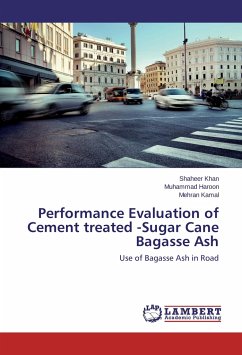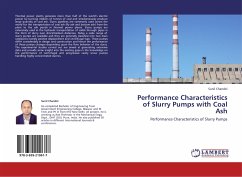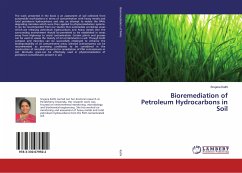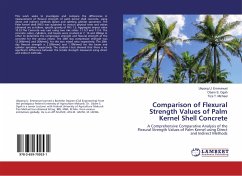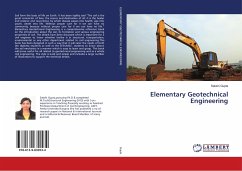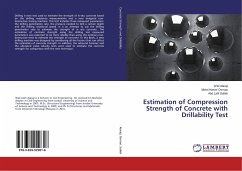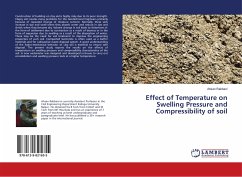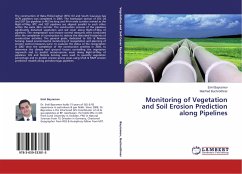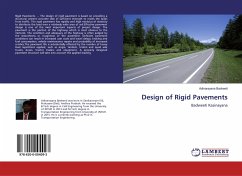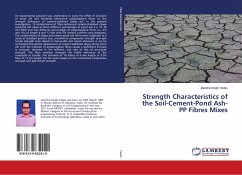
Strength Characteristics of the Soil-Cement-Pond Ash-PP Fibres Mixes
Versandkostenfrei!
Versandfertig in 6-10 Tagen
33,99 €
inkl. MwSt.

PAYBACK Punkte
17 °P sammeln!
An experimental program was undertaken to study the effect of inclusion of pond ash and randomly distributed polypropylene fibres on the strength behaviour of cement-stabilized clayey soil. In the present investigation, 19 combinations of fibre-reinforced cement-stabilized clayey soil-pond ash mixes at three different percentages of pond ash (i.e. 10, 20 and 30%) and two different percentages of polypropylene fibres (i.e. 0.5 and 1%) of length 6 and 12 mm with 5% cement content were prepared. The combinations of clayey soil-cement-pond ash fibres were subjected to a series of standard proctor ...
An experimental program was undertaken to study the effect of inclusion of pond ash and randomly distributed polypropylene fibres on the strength behaviour of cement-stabilized clayey soil. In the present investigation, 19 combinations of fibre-reinforced cement-stabilized clayey soil-pond ash mixes at three different percentages of pond ash (i.e. 10, 20 and 30%) and two different percentages of polypropylene fibres (i.e. 0.5 and 1%) of length 6 and 12 mm with 5% cement content were prepared. The combinations of clayey soil-cement-pond ash fibres were subjected to a series of standard proctor test, unconfined compressive strength and split tensile strength tests. Based on favourable test results obtained, it can be concluded that partial replacement of cement-stabilized clayey soil by pond ash with the inclusion of polypropylene fibres causes a significant increase in strength, decrease in the stiffness, and rate of loss of post-peak strength. The fibre inclusion changed the brittle behaviour of the composite to ductile. The inclusion of 1% fibres of 6 mm length or 0.5% fibre of 12 mm length has the same impact on the unconfined compressive strength and split tensile strength.



